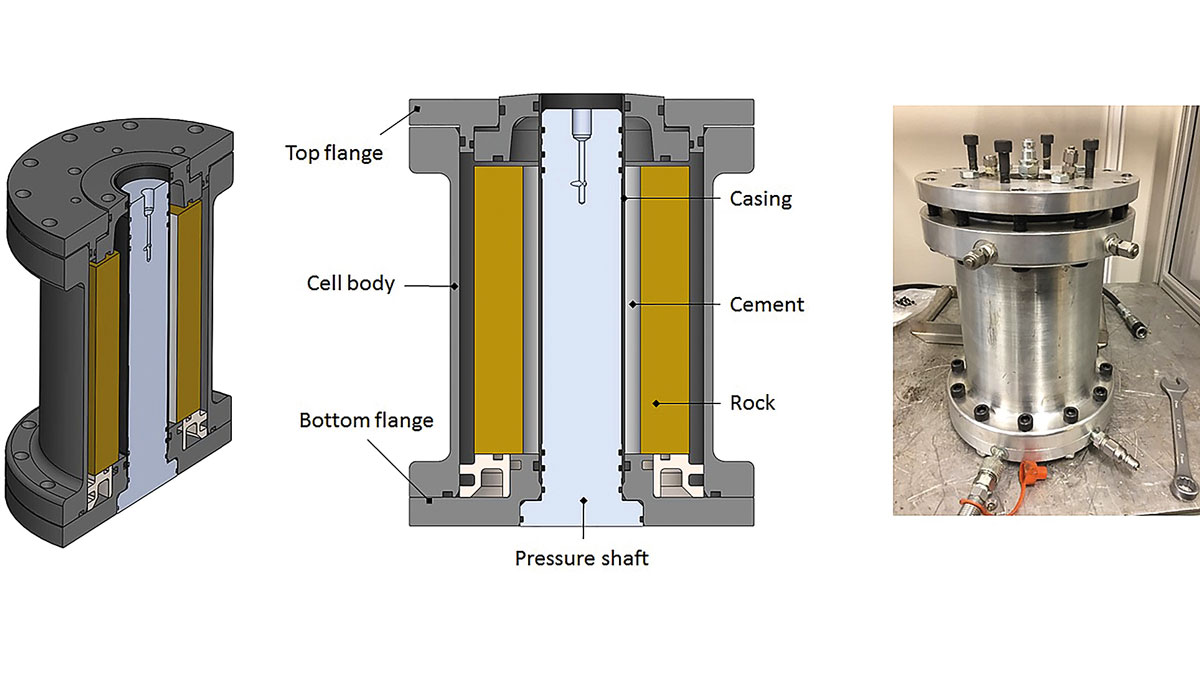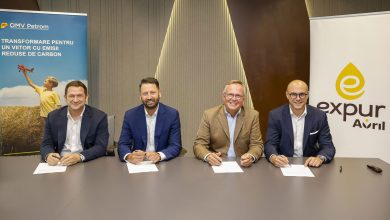GeoEcoMar, Partner in the REX-CO2 International Project
The international project REX-CO2 (RE-USING EXISTING WELLS FOR CO2 STORAGE OPERATIONS) aims to establish the evaluation criteria according to which a hydrocarbon well can be reused for CO2 storage, in a technically safe and economically feasible manner.
The project aims to develop the necessary methodologies and tools for evaluating the potential of reusing the existing oil and gas wells for CO2 operations. Such evaluation will consider the technical, environmental, economic, and social elements of the reuse project. The methodology and tools for its application will be tested on wells in the oil and gas fields previously selected in the project partner countries.
The consortium, which is coordinated by TNO (the Netherlands Organization for Applied Scientific Research), includes research institutes and industrial partners from the Netherlands, Romania, the United Kingdom, the United States of America, France, and Norway. The project has as associate partners regulatory authorities from the UK and Romania.
The project REX-CO2 (2019-2022) benefits from international funding through the second phase of the ACT (Accelerating CCS Technologies) program. ACT is the initiative of 16 agencies for funding scientific research in Europe and the US, which want to stimulate the development of carbon dioxide capture and storage technology. In a first phase, the ACT program was also financially supported by the European Commission. In the following phases, national agencies for funding scientific research will fully finance the program. In Romania, it is UEFISCDI.
National Project REX-CO2
In Romania, GeoEcoMar is the coordinator of the working package ‘Legislative, environmental, and social aspects’ (WP6), which involves that each participating country conducts an analysis of provisions of their own legislation on the reuse of oil and gas wells for carbon dioxide storage. This analysis aims to identify the potential legal vacuum, which will be reported to the national regulatory authorities.
Existing oil and gas industry installations which cover large parts of the potential CCS chain are already in place, and an increasing number of reservoirs have come to the end of their production lifetime and are earmarked as major targets for initiating large-scale CCUS operations (DOE, 2017). The existing wells in these assets present both opportunity and challenges. Substantial savings could be realized by re-using these wells as CO2 injectors, monitoring wells, or for water production (pressure management). On the other hand, the existing well infrastructure poses a risk as a potential CO2 or brine leakage pathway (Watson and Bachu, 2009). In this project, GeoEcoMar takes a fresh look at this problem and provides a novel solution. The re-use of wells is the inverse of the problem of identifying defective wells. The process of certifying well integrity can also be used to identify wells suitable for continued use in a CO2-rich environment. The institution develops a qualification process that will simultaneously save CO2 storage projects money and time by identifying existing infrastructure that is seif to re-use, while determining which wells must be remediated to ensure long-term storage.
Re-use can benefit projects in all geological settings but may be particularly crucial for offshore environments, such as the North Sea or the Gulf of Mexico, where well development costs could otherwise be prohibitive. Developing a procedure and tools for evaluating the reuse potential of existing hydrocarbon fields and wells will require a dedicated investigation encompassing the interrelated technical, environmental, economic, and social aspects. Currently no such publicly available tool exists. For this project, GeoEcoMar conducts the necessary research to develop a dedicated well-screening tool for Reusing Existing Wells for CO2 storage operations (REX-CO2).
Project objectives are: Develop a publicly available well reuse screening tool which helps stakeholders to make informed decisions on the CCS reuse potential of certain wells or fields; Demonstrate the application of the developed tool to perform dedicated reuse assessment, including technical, ecological, and economic aspects with candidate wells/fields from multiple international sites; Perform laboratory testing on relevant reuse risk scenarios, provide recommendations for (smart) material selection in reused wells; feed coupled thermo-hydraulic-mechanical-chemical (THMC) models and improve failure predictions; Provide guidance for the development of reuse permit applications; Gain an improved understanding on public acceptance and provide guidance on the socio-economic aspects of re-using oil and gas infrastructures.
Expected results
The results of REX-CO2 are expected to facilitate large-scale CCUS implementation by providing a tool to evaluate and rank the CO2 reuse potential of hydrocarbon fields. The developed technology is not limited to a particular sector of CO2 storage but will accelerate all types of CCS. Key results will include: Synthesised findings from developing a public reuse well screening tool for reusing existing hydrocarbon fields; Key findings in laboratory experiments, including well cement state of stress, material self-healing potential and implications for integrity of reused wells; Field scale numerical simulation results for different reuse field scenarios; Field case reuse studies for selected wells and depleted fields in all six partner countries; Assessment of public acceptance and recommendations for future projects involving well re-use for CO2 injection/storage; Development of technical and socioeconomic best practice recommendations for reusing existing wells for CO2 storage.
Experimental Investigation for Re-using Wells for CO2 Storage: Work Package 3
WP3 is an integrated laboratory and numerical modelling study to assist in the assessment of existing wells and to provide strategies for remediating well leakage. Several world-leading laboratories working on well integrity are contributing to the work. The results aim to improve understanding of well re-use operations, and to provide input data for risk assessment tools. These research topics will provide fundamental understanding of key elements absent from current knowledge of well damage processes such as barrier degradation, self-sealing mechanisms, and active remediation measures.
Initial work will focus on ageing tests of rocks and cement including cement-steel bonding, cement sheath degradation, and determination of state of stress in cement after carbonation. An important aim of WP3 is that the obtained results are applicable for well re-use scenarios.







